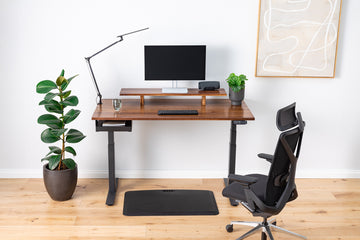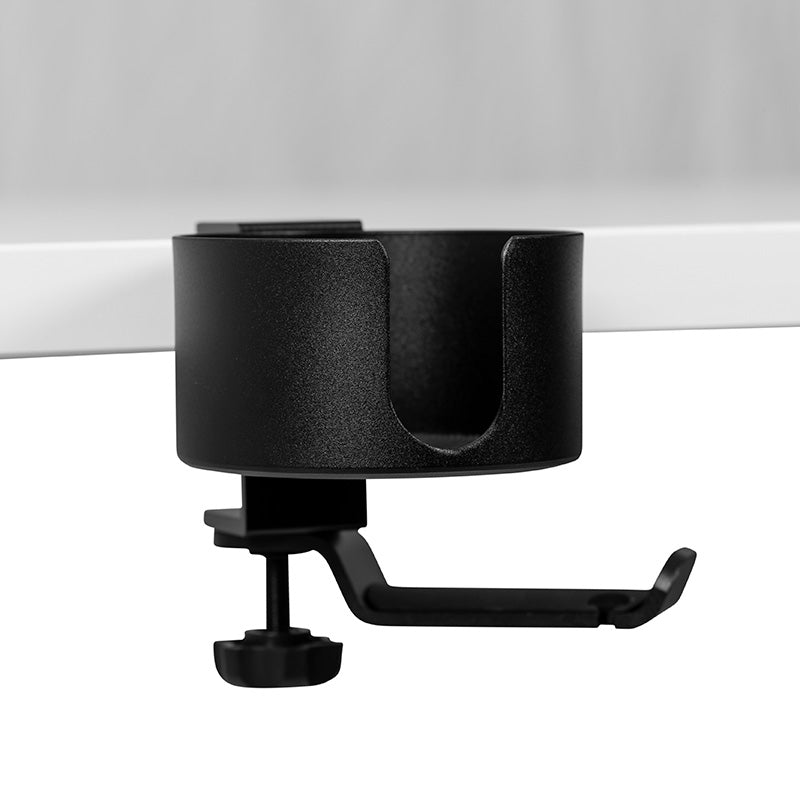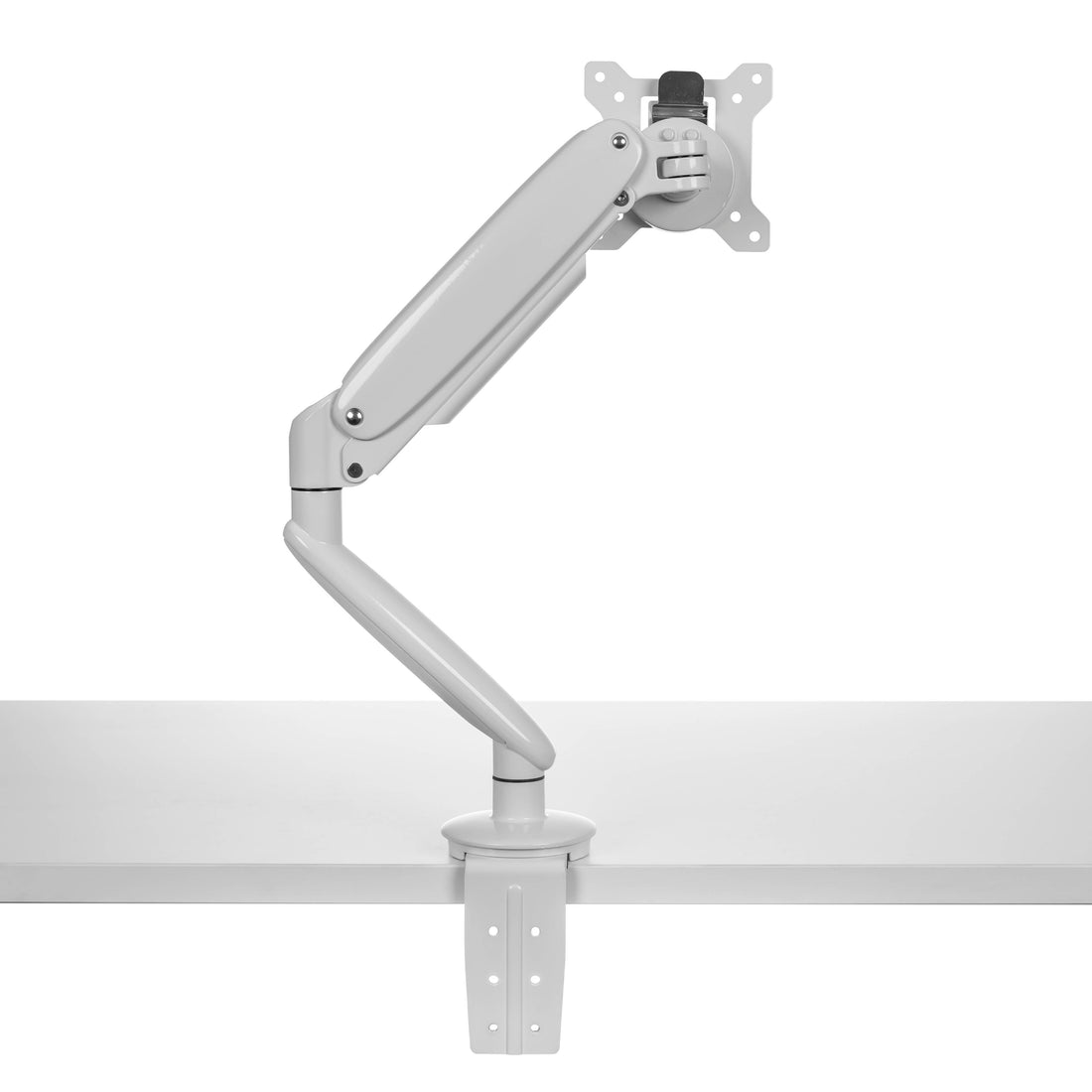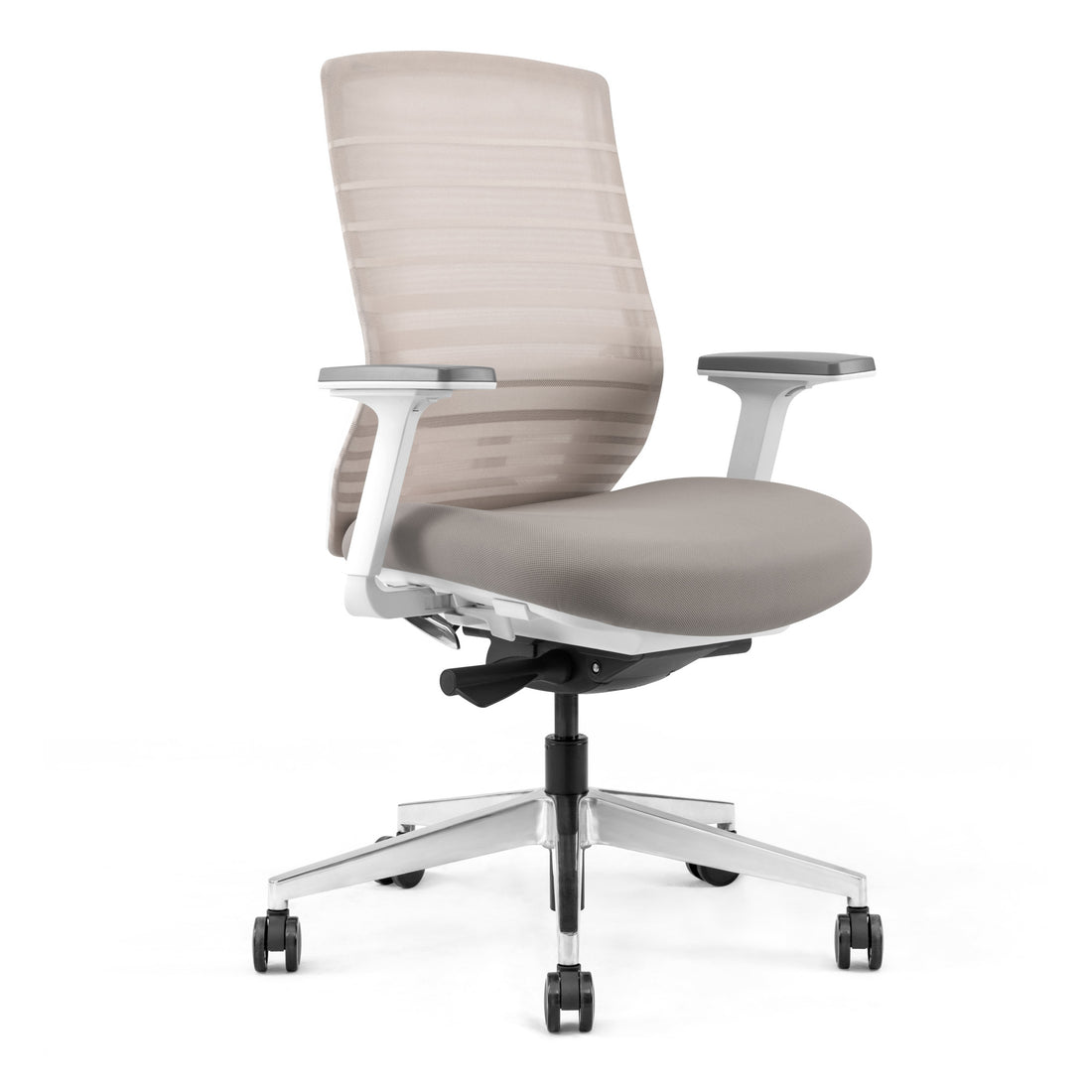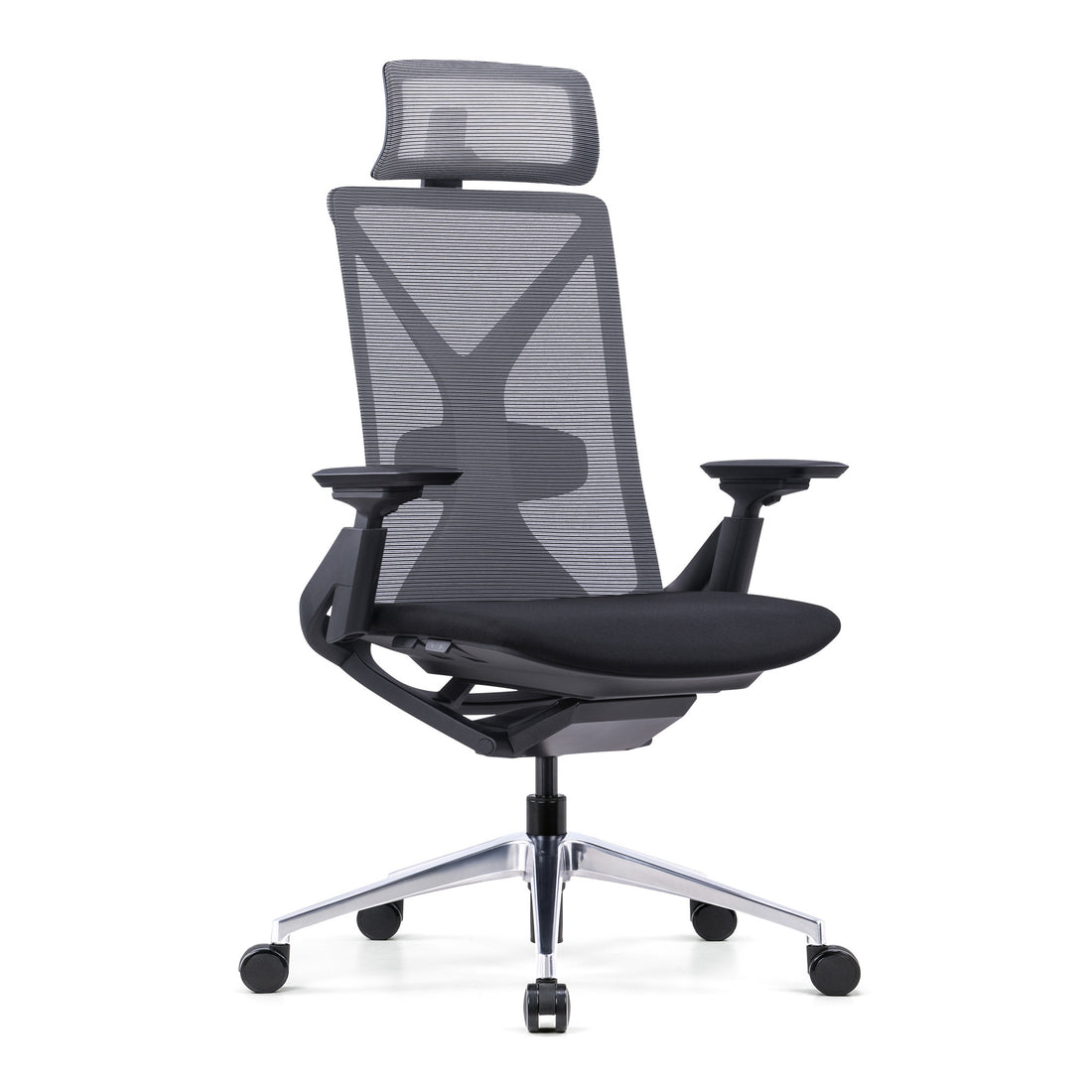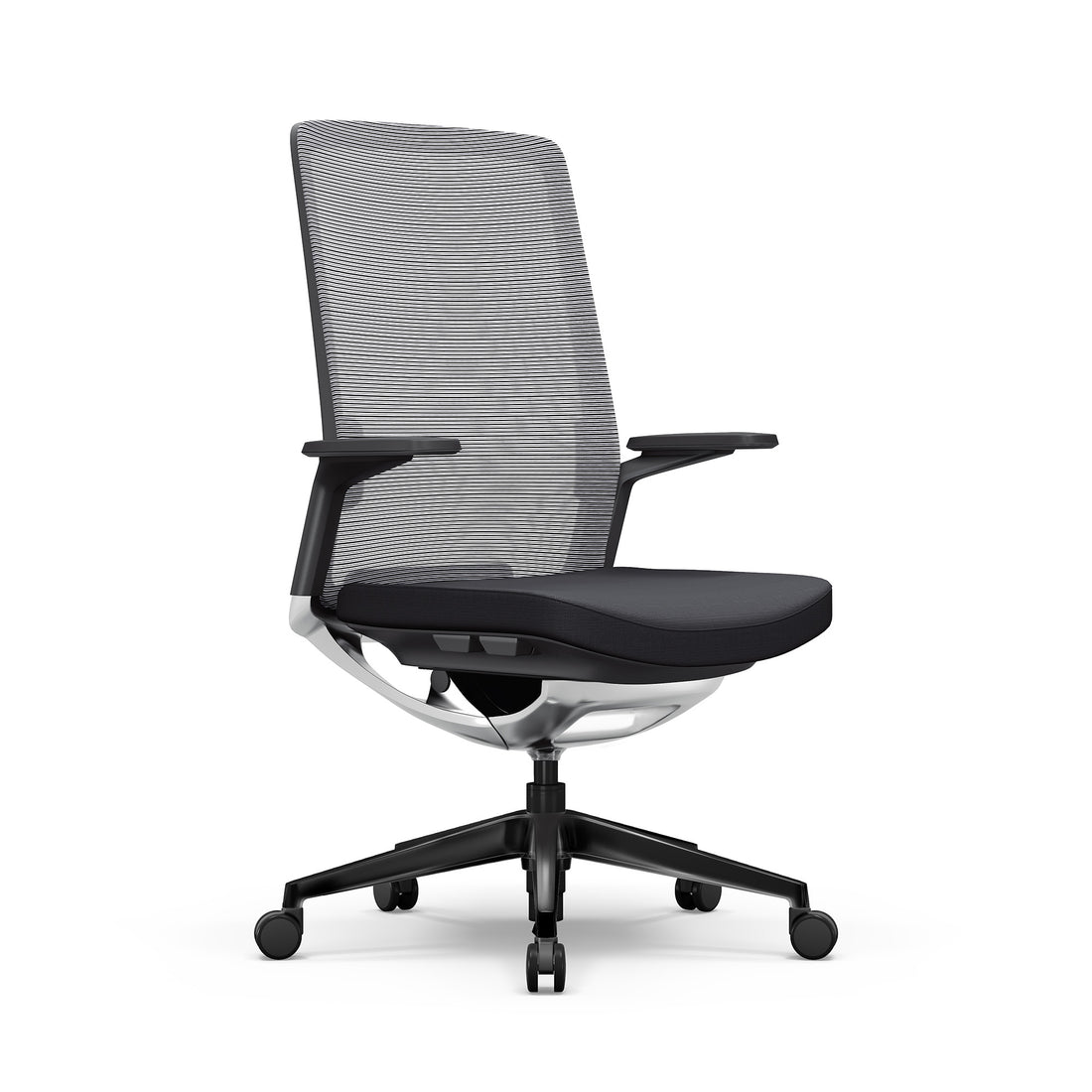With health experts' persistent warnings about the dangers of prolonged sitting, the popularity of height-adjustable desks is growing exponentially. But do employers have to provide a standing office desk?
It depends.
Aside from Denmark, where it is mandatory to offer employees standing desks at work, most countries do not have legislation obliging employers to provide ergonomic height-adjustable desks. Failure to do so can become an occupational hazard, and neglecting an employee's request for one may land an employer in a court of law.
In this article, we unpack the employer’s obligation with regard to standing desks.
Employer Obligations To Health And Safety In The Workplace
The general duty of any employer is to provide employees with a workplace that is free from recognised hazards that cause serious physical harm or death and specific guidelines are applicable for different scopes of work.
In Australia, the Work, Health and Safety Act (WHS) has set out the guidelines for ensuring the health and safety of workers so far as is reasonably practical.
Workstations are included in The Codes of Practice under The Act. This includes the consideration of whether work is better carried out in a standing or seated position or a combination of both.
Further recommendations include:
- There should be a mix of seated and standing tasks.
- Neither prolonged sitting nor standing is desirable
- Workstation design must accommodate a comfortable upright position.
- Different workers require different working heights
- It is best to provide adjustable workstations
- Workers should be consulted when carrying out the assessment
Reasonable Accommodation For Standing Desks
“Reasonable accommodation” means change within a workplace that enables an employee to effectively do his or her job despite having a disability.
Employers are obliged to accommodate employees who qualify as disabled unless it causes the employer “undue hardship.” In other words, jeopardise the business or functioning thereof.

When is a request for a sit-stand desk an accommodation request?
Reasonable accommodation applies to any employee with a valid request. Let’s use a couple of examples to illustrate what we mean by this.
- An employee feels that they need to lose some weight and would benefit from an ergonomic height adjustable desk. A request like this without a supported medical recommendation is unlikely to be considered a reasonable accommodation.
- An employee with a qualifying disability, corroborated through medical certification, requests a sit-stand desk. Without one the job they are employed to do is compromised so, an employer is obliged to accommodate them.
If it is not adequately proven that having a sit-to-stand desk will benefit the employee in carrying out the essential duties of the job, the employer is not under obligation to provide one.
If an employee approaches an employer for accommodation with a risk factor that could potentially cause a serious health risk, the line becomes a little blurred.
Requesting A Standing Desk At Work
An increasingly common question is how to get a standing desk at work.
If the request has been made to address a specific health problem, such as a back injury, the employer is compelled to enter into an interactive course of action with the employee. This may include requesting additional information from the health provider and exactly what accommodations are necessary to improve the employee’s job function.
In the absence of a chronic illness or disability that justifies an adjustable desk, a request for a standing PC desk would depend on several factors. These include:
- The overall morale of the employees
- Whether similar requests have been previously accommodated
- Will accommodating the request cause the employer undue hardship?
Undue hardship refers to a situation in which the accommodation would cause significant difficulty or expense. The link between standing desks and productivity may be a good starting point to convince your manager of the benefits of an adjustable ergonomic desk.
The more hours of screen time that a job requires the more justifiable a request for an adjustable desk becomes.
A standing reading desk for book editors or a standing desk for video editors, graphic designers, or auditors will be better used than by a salesperson who spends time out of the office or walking around a showroom floor.
How to Ask For A Standing Desk At Work
The following section is not intended to be legal advice and it should not be taken as such.
The obvious starting point is to bring to your manager's attention that most injuries or pains experienced by desk-bound workers are caused by overuse - simply doing the same thing, in the same position/posture, for hours on end.
After discussing this with your manager, hopefully, they will start to see the benefit of a standing desk. However, you will likely run into a bit of a roadblock when it comes down to cost. At this point, you can inform your manager that the average cost of, for instance, an UpDown Desk standing desk frame is less than $750. In most cases, you will be able to re-use your existing desktop, so there is no need to buy a new one. This $750 might sound expensive, but you could kindly let your manager know that if your injury gets worse, and progresses to a WorkCover claim, the employer will be liable to pay $707 in medical expenses (this is the Victorian amount, it is similar in other states around Australia) before their workers' compensation insurance kicks in. Add to this the lost productivity caused by your absence from work, and the $750 for a standing desk doesn't seem like such a bad option now! If the frame-only option doesn't suit there are quality budget-conscious frame plus desktop options such as Bamboo and Melamine.
It is unlikely your manager will still stay no at this stage. However, if they do, you have one final trump card. Simply get a medical certificate from your treating GP, Physio, Osteo, or Chiro, which states that a standing desk is recommended to help with your recovery and prevent further exacerbation of your injury. An employer is playing with fire if they try to overrule the opinion of a treating health practitioner, as it begins to raise questions about underemployment and OHS law, especially if your condition gets worse.
Further, employers have a legal responsibility to make reasonable adjustments to your workplace if an injury requires such adjustments for you to complete your work. By my reckoning, a standing desk is a reasonable adjustment, especially when the cost is actually around the minimum amount the employer will be liable for should your injury progress to a WorkCover claim..
What Is The Employer's Obligation When Employees Work From Home?
An employer's obligation to provide a safe workspace does not only apply to an onsite work environment but according to the WHS code of practice, extends to mobile and remote workers.
Before the Covid 19 Pandemic, Australians working remotely were subject to stringent WHS requirements, often involving a consultant doing a home visit to ensure a suitable work area. With millions of workers housebound and COVID protocols in place, home checks have become uncommon however this does not negate the responsibility of the employer to ensure a safe workspace for employees.
Not all workers have good knowledge of what makes up a safe workstation and the more time spent in an ergonomically poor environment, the higher the chance of a work-related back or neck injury. Employers should issue guidelines to employees on how to make their remote workstations as safe as possible.
Detriments Of Prolonged Sitting
A Deakin University economic evaluation of sit-stand desks shows they are “good value for money”. Workers were provided with sit-stand desks as part of a 12-month trial led by the Baker Heart and Diabetes Institute.
Deakin health economic researcher Dr Lan Gao said:
- too much sitting time was a critical health issue for the 45% of Australian employees who worked at desks and was associated with serious health problems such as obesity, type 2 diabetes, and heart disease
- too much sitting was associated with reduced life expectancy
- “our evaluation shows that the introduction of sit-stand desks, alongside associated supports, is a cost-effective and innovative way to promote the health of Australia’s workforce”
Melbourne office worker Alexandra Post said she was convinced working at a sit-stand desk helped her to be more productive. The recruitment company employee said she had noticed herself becoming drowsy after a few hours of sitting at her desk and becoming less productive. Standing up and working gave her more energy and focus as well as helping prevent, or alleviate, the back and neck pain she was prone to, she said. “I am more productive at work because of it, and it has helped my overall health, “ Ms Post said.
You can read the full article on the Baker Institute website at:
https://www.baker.edu.au/news/in-the-media/sit-stand-diabetes

Bottom line is, a sedentary lifestyle and prolonged sitting are blamed for a multitude of ailments:
- Inefficient blood flow increases the risk of cardiovascular disease
- Poor posture and musculoskeletal problems
- Pressure on the digestive organs
- Decrease of blood to the brain adversely affects cognitive function.
There is no debate that modern-day humans need to move more. And an adjustable writing desk could be the answer for many.
Summary
An employer is not obligated to fulfill a request for a standing desk unless the country they work in has legislation in place obliging them to do so. A reasonable request for disability, illness, or injury must be considered and negotiated with the requesting employee.
With increasing awareness of the poor health outcomes associated with prolonged sitting, employees will continue to request modified workstations. The standing desk trend is not likely to disappear soon and it may be prudent for employers to start making changes to traditional workplaces before it becomes obligatory.

